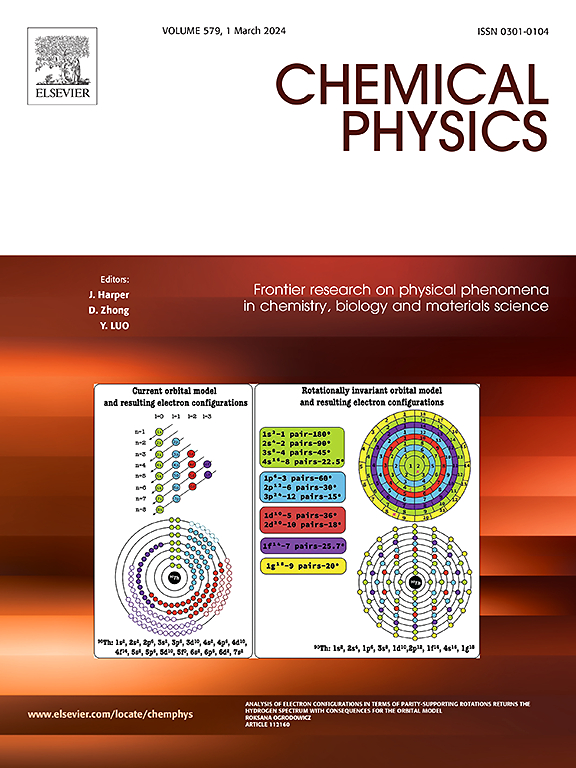An Implementation of DMET-CCSD(T) in Water Clusters: Reduced Scaling and Quality of Relative Energies
IF 2
3区 化学
Q4 CHEMISTRY, PHYSICAL
引用次数: 0
Abstract
We present a method to significantly reduce the computational scaling of the post-Hartree–Fock (post-HF) component in Density Matrix Embedding Theory (DMET) calculations by exploiting the exponential decay properties of both the mean-field density matrix and the orbital transformation matrix. Additionally, we extend this reduced-scaling approach to calculate the coupled-cluster CCSD(T) density matrix, facilitating DMET-CCSD(T) energy evaluations through a back-transformed energy formula. The accuracy of relative electronic energies is benchmarked using the all-electron solver, Lowdin-partitioned fragments, and fragments derived from Intrinsic Atomic Orbital and Projected Atomic Orbital (IAO+PAO) partitioning schemes. Our results demonstrate that, with appropriate utilization of the decay of one particle density matrix (1-PDM), the scaling in the evaluation of the post-HF energy can be reduced. Furthermore, for relative electronic energies calculations, Lowdin partitioning performs well in weakly interacting systems, such as water clusters. This study underscores the potential of reduced-scaling techniques to improve computational efficiency and the efficacy of CCSD(T) solvers in delivering accurate thermochemical predictions in weakly interacting systems.

求助全文
约1分钟内获得全文
求助全文
来源期刊

Chemical Physics
化学-物理:原子、分子和化学物理
CiteScore
4.60
自引率
4.30%
发文量
278
审稿时长
39 days
期刊介绍:
Chemical Physics publishes experimental and theoretical papers on all aspects of chemical physics. In this journal, experiments are related to theory, and in turn theoretical papers are related to present or future experiments. Subjects covered include: spectroscopy and molecular structure, interacting systems, relaxation phenomena, biological systems, materials, fundamental problems in molecular reactivity, molecular quantum theory and statistical mechanics. Computational chemistry studies of routine character are not appropriate for this journal.
 求助内容:
求助内容: 应助结果提醒方式:
应助结果提醒方式:


